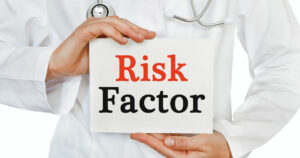Depression is a mental illness that affects people of all ages, genders, and races. It is characterized by feelings of sadness, emptiness, hopelessness, and worthlessness that can last for weeks or months at a time. While there are many different types of depression, unipolar depression is the most common. In this blog post, we will discuss the symptoms and causes of unipolar depression as well as ways to manage it effectively.
Contents
What Is Unipolar Depression?
 Unipolar depression is a mental illness characterized by persistently depressed mood or loss of interest in activities, causing significant impairment in daily life. This condition is often accompanied by physical symptoms such as fatigue, sleep disturbance, and change in appetite.
Unipolar depression is a mental illness characterized by persistently depressed mood or loss of interest in activities, causing significant impairment in daily life. This condition is often accompanied by physical symptoms such as fatigue, sleep disturbance, and change in appetite.
There are two types of unipolar depression: major depressive disorder (MDD) and dysthymia. MDD is characterized by a single episode or recurrent episodes of depression that last for at least two weeks. Dysthymia is a chronic form of depression that lasts for at least two years.
It is, however, sometimes known as clinical depression, major depressive disorder (MDD), or simply depression. Many people with this condition also experience symptoms of anxiety. According to studies, unipolar depression is the leading cause of disability worldwide.
It is more common in women than men and usually begins in adulthood. The reason behind this prevalence cannot be pinpointed to a single cause. However, certain risk factors have been identified that may increase one’s likelihood of developing unipolar depression. So, it is important to reach out to professional help if you or someone you know is suffering from this condition.
What Are The Symptoms?
There are a variety of symptoms associated with unipolar depression. They can be physical, psychological, or social in nature. Let’s discuss each of these in a little more detail.
Physical
These types of symptoms can be numerous and vast, these include:
- Changes in sleep patterns: It is common for people who are depressed to either sleep too much or have difficulty sleeping.
- Changes in appetite: People with depression may lose their appetite or find that they are constantly hungry.
- Fatigue: Feeling tired and run down is a common symptom of depression.
- Loss of interest in activities: When someone is depressed, they often lose interest in activities that they used to enjoy.
- Headaches: Many people who suffer from depression also experience headaches.
- Stomach problems: This type of problem can manifest itself in a number of ways including nausea, vomiting, and diarrhea.
Psychological
There are also a variety of psychological symptoms associated with unipolar depression, these include:
- Feelings of sadness: Sometimes, sadness can be so overwhelming that it feels like physical pain.
- Anxiety: This is very common in people who suffer from this condition and can manifest itself in a number of ways, such as excessive worry, restlessness, etc.
- Irritability: People with depression may also be more irritable than usual.
- Difficulty concentrating: It can be hard to focus on anything when you’re depressed. For example, you may have trouble reading or watching TV.
- Feelings of worthlessness or guilt: Sometimes, people with unipolar depression may feel like they’re not good enough or that they’ve done something wrong.
- Thoughts of death or suicide: It is really important to seek help if you are having thoughts about harming yourself or taking your own life.
Social
 It is also one of the symptoms that can manifest in unipolar depression. Some social in nature symptoms include:
It is also one of the symptoms that can manifest in unipolar depression. Some social in nature symptoms include:
- Avoiding social activities
- Loss of interest in sex
- Withdrawing from friends and family
- Isolation
These are just some of the ways in which unipolar depression can manifest itself. It is important to remember that everyone experiences unipolar depression differently and will therefore have different symptoms. If you are struggling with this condition, it is important to seek professional help in order to manage your symptoms and live a happy and healthy life.
What Causes Unipolar Depression?
There are many potential causes of unipolar depression. It may be caused by a combination of genetic, biological, environmental, and psychological factors. Some people may be more vulnerable to developing unipolar depression due to their genes or family history.
Genetic
Genetic factors are believed to play a role in unipolar depression, as the disorder often runs in families. Researchers have not yet identified specific genes that are linked to the disorder, but it is thought that multiple genes may be involved. It is often the case that a person with unipolar depression will have a close relative who has also experienced the disorder.
Biological
There are some biological explanations for unipolar depression. For example, people with unipolar depression may have a serotonin deficiency. Serotonin is a neurotransmitter that helps regulate mood. A serotonin deficiency can lead to feelings of sadness and low self-esteem. Additionally, people with unipolar depression may have a genetic predisposition to the condition. This means that if someone in your family has unipolar depression, you may be more likely to develop it as well.
Environmental
These factors, such as exposure to stressful life events or a history of trauma, may also play a role in the development of unipolar depression. It is important to note that not everyone who experiences these things will go on to develop unipolar depression. More often, environmental factors can be seen as a vulnerability that may increase the risk of developing unipolar depression when combined with other risk factors.
Psychological
Finally, psychological factors such as negative thinking patterns or a lack of social support may contribute to the development of unipolar depression. People who tend to see the world in a negative light or who have few people to rely on are more likely to experience this type of depression.
Risk factors
 Other risk factors for unipolar depression include:
Other risk factors for unipolar depression include:
- Previous episodes of depression
- Alcohol abuse or other substance abuse problems
- Social isolation
- Poor self-esteem
- Lack of coping skills
- Thyroid problems
- Certain types of cancer
- Chronic illnesses
While anyone can develop unipolar depression, there are certain groups of people who are at a higher risk. Women are about twice as likely as men to suffer from this condition. It is important to understand the risk factors for unipolar depression so that you can be more aware of the warning signs. If you have any of the risk factors listed above, it is important to talk to your doctor so that you can receive the proper treatment.
How Does It Different From Other Forms Of Depression?
As there are different types of depression, unipolar depression is one type that is different from others. With unipolar depression, a person only experiences depressive episodes and not manic or hypomanic episodes like with bipolar disorder. This can make this condition harder to diagnose because it may look like other forms of clinical depression at first.
Unipolar depression is characterized by a depressed mood that lasts for at least two weeks. This can include feeling down, blue, unhappy, hopeless, and/or irritable. The difference between normal sadness and unipolar depression is that the latter interferes with a person’s ability to function in their day-to-day life.
Other depression types may have similar symptoms, but with unipolar depression, the person only experiences depressive episodes and not manic or hypomanic episodes. For instance, with the seasonal affective disorder (SAD), people may experience depressive episodes during certain seasons. With postpartum depression, women may experience depressive symptoms after giving birth.
This is the most common type of depression, and it can affect anyone at any age. It’s important to seek help if you think you or someone you know may be depressed. Depression is a serious illness, but it’s also treatable.
How Does It Impact Life?
 Many people with unipolar depression find that their condition significantly interferes with their daily lives. Some common consequences of unipolar depression include:
Many people with unipolar depression find that their condition significantly interferes with their daily lives. Some common consequences of unipolar depression include:
- School and work performance may suffer
- Productivity may decline
- Relationships with friends and family members may become strained
- Difficulty completing everyday tasks
- Self-care may be neglected
- Interest in hobbies and activities may diminish
These effects can have a profound impact on every aspect of a person’s life. It can make it difficult to maintain relationships, perform well at work or school, and take care of oneself. Fortunately, there are many effective treatments for unipolar depression.
People should understand that unipolar depression is a real medical condition that requires treatment. If you or someone you know is experiencing symptoms of this condition, reach out for help. There are many resources available to those struggling with this condition.
How To Treat It?
Treatment is important when someone suffers from unipolar depression. A combination of medication and therapy is often the most successful approach. Let’s discuss some of the ways to treat unipolar depression.
Medication
It is important to speak with a psychiatrist when considering medication for unipolar depression. A psychiatrist is a medical doctor who specializes in diagnosing and treating mental health conditions. They can offer different types of medications, depending on the severity of your depression. Some common medications include:
- Selective serotonin reuptake inhibitors (SSRIs)
- Serotonin and norepinephrine reuptake inhibitors (SNRIs)
- Tricyclic antidepressants (TCAs)
- Monoamine oxidase inhibitors (MAOIs)
It is often recommended that people start with a low dose of medication and increase the dosage if needed. It is also important to note that it can take several weeks for medications to start working.
Therapy
 Individual therapy, or counseling, is another way to treat unipolar depression. In therapy, you work one-on-one with a therapist to identify and change negative thinking and behavior patterns. You also work on developing healthy coping skills to deal with life stressors. Therapy can be an effective treatment for unipolar depression, especially if you have severe or recurrent depression.
Individual therapy, or counseling, is another way to treat unipolar depression. In therapy, you work one-on-one with a therapist to identify and change negative thinking and behavior patterns. You also work on developing healthy coping skills to deal with life stressors. Therapy can be an effective treatment for unipolar depression, especially if you have severe or recurrent depression.
- Cognitive behavioral therapy (CBT) is a type of therapy that has been shown to be particularly effective in treating this condition. CBT focuses on changing negative thinking and behavior patterns by teaching you how to recognize and challenge distorted thoughts, as well as how to develop more positive coping skills.
- Interpersonal therapy (IPT) is another type of therapy that can be used to treat unipolar depression. IPT focuses on your relationships with others and how they may be affecting your depression. IPT can help you learn how to communicate better, resolve conflicts, and develop healthier relationships.
- Group therapy is another treatment option for this condition. In group therapy, you meet with a therapist and other people who are also dealing with depression. This can be a great way to share your experiences and learn from others who are going through similar things.
Support group
Support groups are considered an important part of treatment for unipolar depression. They provide a forum for sharing experiences and feelings and give people the opportunity to offer and receive support from others who understand what they are going through. There are many different types of support groups available, including in-person groups, online groups, and telephone support groups.
Some groups focus on specific topics, such as coping with the death of a loved one or adjusting to life after a divorce. Others are more general in nature and provide support for people with this condition in all stages of the condition. No matter what type of group you choose, participating in a support group can be an important part of your recovery.
Self-care
This is an essential part when it comes to managing unipolar depression and it includes activities such as maintaining a healthy lifestyle, getting enough sleep, practicing relaxation techniques and setting realistic goals. It is also important to develop a support system of family and friends who can provide emotional stability and help with day-to-day tasks.
Taking care of yourself is always important, but it is especially crucial when you are dealing with this type of depression. Of course, self-care can only do so much and you may need medication and/or therapy to manage your symptoms. But, by taking care of yourself and implementing healthy coping mechanisms, you can make a big impact on your overall mood and well-being.
So these are some common tips for managing this condition. Remember, every person experiences and copes with depression differently, so find what works best for you, and don’t be afraid to ask for help when needed.
Conclusion
To conclude, unipolar depression is a serious mental illness that can have a negative impact on a person’s life. It is simply described as a depressive disorder and is different from bipolar depression. If you or someone you know is struggling with this condition, there are ways to manage it. With the help of a mental health professional, medication, and therapy, many people are able to live happy and fulfilling lives.
For more tips and guidance, you can reach out to Therapy Mantra. The team of professional counselors is more than happy to help you in your journey to recovery. Contact us today to learn more about our services. You can also book an online therapy session or download our free Android or iOS app.


